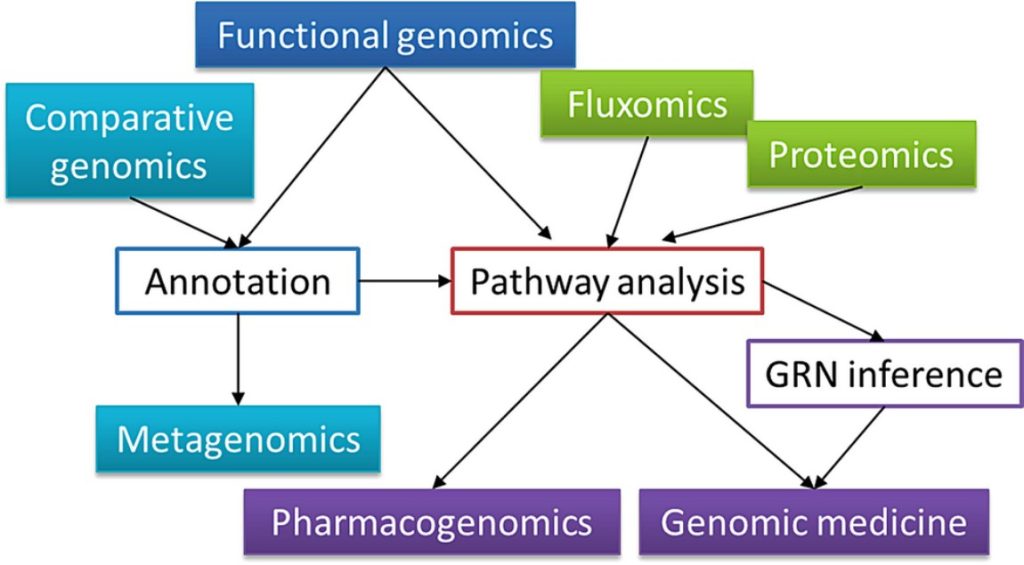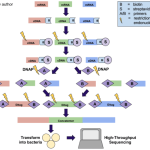Functional genomics is the study of how genes and intergenic regions of the genome contribute to different biological processes. A researcher in this field typically studies genes or regions on a “genome-wide” scale (i.e. all or multiple genes/regions at the same time), with the hope of narrowing them down to a list of candidate genes or regions to analyse in more detail.
The goal of functional genomics is to determine how the individual components of a biological system work together to produce a particular phenotype. Functional genomics focuses on the dynamic expression of gene products in a specific context, for example, at a specific developmental stage or during a disease. In functional genomics, we try to use our current knowledge of gene function to develop a model linking genotype to phenotype.
There are several specific functional genomics approaches depending on what we are focused on (Figure 1):
- DNA level (genomics and epigenomics);
- RNA level (transcriptomics);
- protein level (proteomics);
- metabolite level (metabolomics).

Figure 1 Functional genomics is the study of how the genome, transcripts (genes), proteins and metabolites work together to to produce a particular phenotype.
Together, transcriptomics, proteomics and metabolomics describe the transcripts, proteins and metabolites of a biological system, and the integration of these data is expected to provide a complete model of the biological system under study.


